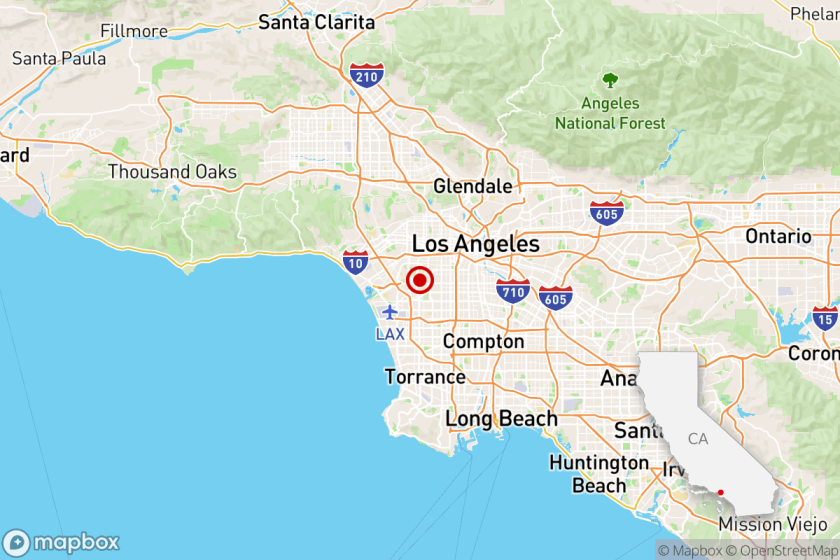Judge is censured for failing to share military benefits with his ex-wife
Even a judge can’t get away with keeping community property from an ex-wife.
San Luis Obispo Superior Court Judge John A. Trice received a public censure Thursday for failing to share his military benefits with his former wife as stipulated in their 1990 divorce agreement, the California Commission on Judicial Performance announced.
Public censure is considered a serious form of discipline, just short of removal from the bench.
See more of our top stories on Facebook >>
The state watchdog commission also faulted Trice for failing to disclose in court that he had a close personal relationship with a criminal defense lawyer who frequently appeared before him, for sending a supervisory judge a disparaging email and displaying “intemperate conduct” toward a court administrator.
Trice, a former prosecutor who was elected to the bench in 2003, did not inform his ex-wife that he had retired from the military in 2012 and was receiving benefits, the commission said.
Instead, he put some of the money in an account in case she later asked for it, the commission said. The ex-wife eventually learned from someone else that Trice had started receiving the benefits two years earlier.
The commission called Trice’s actions “an affront to the authority and dignity of the judicial system he serves.”
“Our society depends upon our citizens’ compliance with orders, decisions and judgments of our courts,” the commission said. “That compliance, in turn, depends upon citizens’ respect for the courts. When a judge fails to comply with a judgment or order of the court, public respect for the institution of the judiciary and the rule of law is undermined.”
The commission also disciplined Trice for telling a supervisory judge in an email to “get a life” when she inquired why he had left the courthouse in the afternoon without informing her.
“I don’t appreciate you checking on me …, “ Trice wrote in the 2013 email. “I would hope you and your pals upstairs would have better things to do with your time as Superior Court Judges than keep a journal on another Judge’s comings and goings. Pathetic ... get a life.”
Before ending the email, Trice told the other judge: “Have a really nice night.”
Trice also failed to disclose in court that he was close personal friends with David Hurst, a criminal defense attorney who had previously worked with Trice in the district attorney’s office, the commission said.
“Since the judge took the bench in 2003, Hurst has frequently appeared in his court representing criminal defendants,” the commission said. “The judge does not disqualify himself in cases in which Hurst appears as counsel of record, nor does he disclose on the record the fact or nature of his relationship with Hurst.”
Trice argued that he did not have to disqualify himself from Hurst’s cases and that he didn’t officially disclose the relationship because prosecutors were already aware of it. Trice agreed to the public censure in a settlement, the commission said.
Twitter: @mauradolan
ALSO
With embargo under the rug, Persian carpets can roll into U.S. again
UC expands its recruiting efforts targeting black and Latino students
Two charged with murder in the Montecito Heights killings of two teens
More to Read
Start your day right
Sign up for Essential California for news, features and recommendations from the L.A. Times and beyond in your inbox six days a week.
You may occasionally receive promotional content from the Los Angeles Times.







